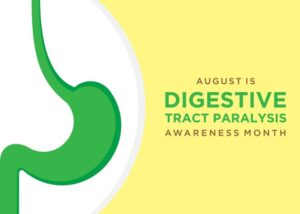Learn How to Improve Your Digestive Health This Digestive Tract Paralysis Awareness Month
August is Digestive Tract Paralysis Awareness Month, a time to spotlight a group of conditions that impact countless individuals yet often remain under-discussed. As a local health provider for gastroenterology in New Jersey, The Medical Group of New Jersey aims to shed light on this important issue, helping patients understand what digestive tract paralysis is, its causes, and how to manage or prevent it.
What is Digestive Tract Paralysis?
Digestive tract paralysis refers to a series of conditions where parts of the digestive system slow down or stop moving food along. The most common forms include gastroparesis and chronic intestinal pseudo-obstruction. In gastroparesis, the stomach’s motility is severely impaired, preventing the stomach from emptying properly. Chronic intestinal pseudo-obstruction involves a similar slowdown or halt in movement but affects the intestines. These conditions can lead to severe symptoms, including nausea, vomiting, abdominal pain, bloating, and significant nutritional deficiencies.

Causes of Digestive Tract Paralysis
The causes of digestive tract paralysis vary, ranging from damage to the vagus nerve, which controls the muscles of the stomach and intestines, to more complex systemic diseases such as diabetes or scleroderma. Viral infections can also lead to transient cases of gastroparesis, and in some cases, the cause remains idiopathic, meaning it is unknown.
Preventing Digestive Tract Paralysis
While not all causes of digestive tract paralysis can be prevented, there are steps one can take to reduce risk and manage symptoms. For those already dealing with diabetes, maintaining good control of blood sugar levels is crucial, as high glucose levels can damage the vagus nerve over time. Regular physical activity and a healthy diet can also play a significant role in enhancing digestive function and overall health.
Tips for Better Digestive Health
Enhancing overall digestive health is beneficial for anyone, whether they’re currently experiencing problems or not. Here are some tips recommended by gastroenterologists:
1. Maintain a balanced diet: Eating a diet rich in fiber can help keep food moving through your digestive tract and prevent problems like constipation and bloating.
2. Stay hydrated: Drinking plenty of water is essential for digesting food and absorbing nutrients properly.
3. Exercise regularly: Physical activity helps accelerate the transit of food through the digestive system and reduces the time the colon has to absorb water from waste, which keeps your bowel movements regular.
4. Manage stress: High stress levels can adversely affect your entire digestive system. Techniques such as yoga, meditation, and deep breathing can help you manage stress.
At The Medical Group of New Jersey, we’re committed to helping our patients manage their digestive health effectively. This Digestive Tract Paralysis Awareness Month, we encourage everyone to be proactive about their digestive health. If you have concerns about your digestive system or are experiencing symptoms related to digestive tract paralysis, don’t hesitate to reach out to our experts in gastroenterology in New Jersey. Together, we can work towards better health and an improved quality of life.